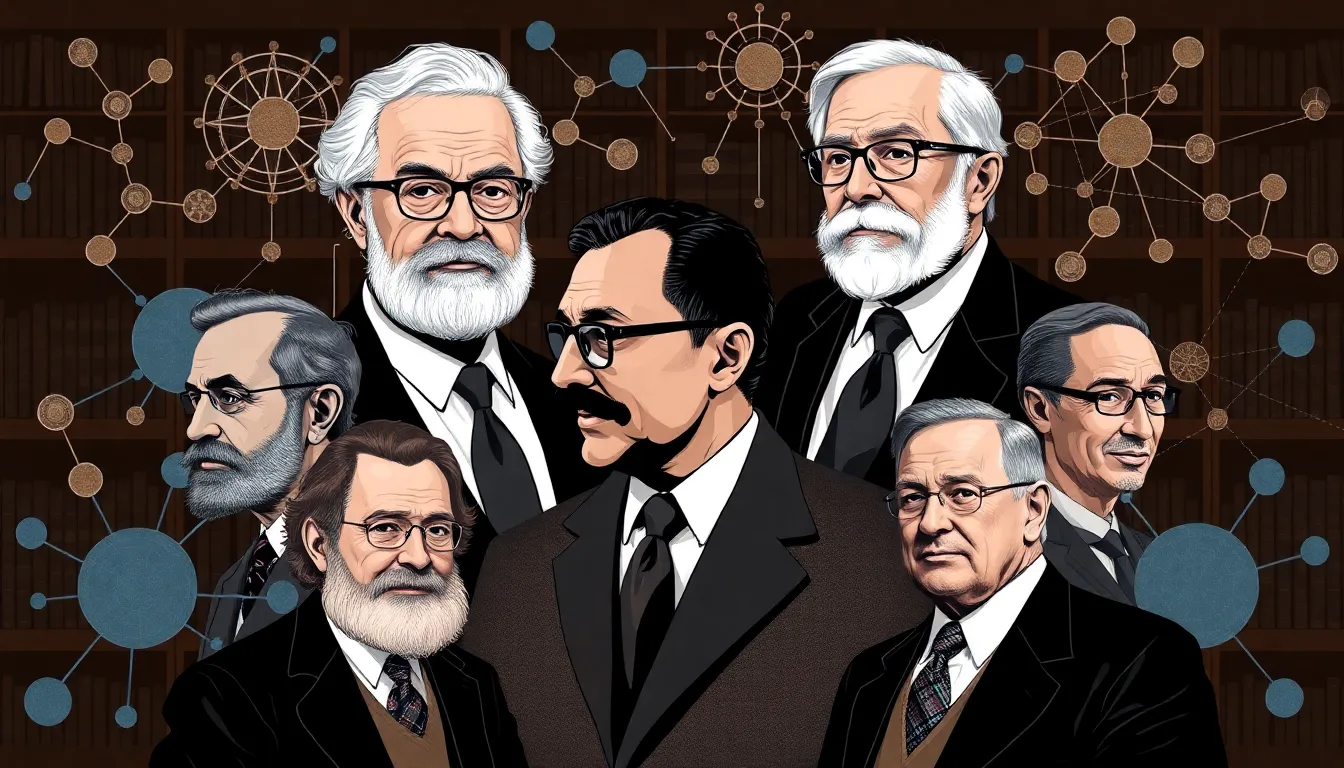Table of Contents
ToggleIn a world buzzing with complexity, systems theory swoops in like a superhero, ready to save the day. Imagine trying to untangle a plate of spaghetti—each noodle represents a part of a system. Systems theory helps make sense of those tangled connections, revealing how everything works together (or doesn’t).
Whether it’s nature, organizations, or even your favorite video game, systems theory offers a lens to understand interactions and behaviors. It’s like having a cheat code for life’s intricate puzzles. So, buckle up as we dive into the fascinating world of systems theory, where chaos meets clarity and every component plays a role in the grand design.
Understanding Systems Theory
Systems theory serves as a framework for analyzing complex interactions among components within various systems. This approach sheds light on how different elements function together, creating a comprehensive view of relationships and behaviors within a structure.
Definition of Systems Theory
Systems theory refers to the study of systems as cohesive groups of interrelated parts. These parts interact dynamically to influence one another, creating a whole that is greater than the sum of its individual components. This concept applies across various fields, including biology, engineering, and social sciences. By focusing on relationships and interactions, systems theory helps researchers and practitioners understand complexities that surface in organizational behavior and natural ecosystems.
Key Concepts in Systems Theory
Several key concepts underlie systems theory, each contributing to its overall framework. Interdependence highlights how components rely on each other within a system. Feedback loops demonstrate how output from a system can impact its input, influencing future behavior. Boundaries define limits, helping to distinguish a system from its environment. Lastly, holism emphasizes examining the system as a whole rather than isolating its components. These concepts collectively strengthen the analysis of interactions, aiding in the development of more effective solutions for complex challenges.
Historical Background

Systems theory emerged as a comprehensive framework for analyzing complex phenomena in the mid-20th century. This approach not only emphasizes the interconnectedness of various components but also explores how these elements work together to form cohesive wholes.
Origins of Systems Theory
The origins of systems theory trace back to the 1940s. At that time, researchers such as Ludwig von Bertalanffy sought to develop a general theory of systems applicable across disciplines. The introduction of cybernetics by Norbert Wiener further enriched the field. These foundational ideas established principles like feedback loops and interdependence, which became crucial in understanding dynamic interactions.
Key Contributors to Systems Theory
Key contributors shaped the development of systems theory. Ludwig von Bertalanffy played a pivotal role by formulating the concept of General Systems Theory, outlining fundamental characteristics of systems. Also influential, Norbert Wiener introduced cybernetics, focusing on communication and control in machines and living beings. Additionally, Kenneth Boulding contributed to the understanding of system hierarchies, offering insights into how systems function within larger contexts.
Applications of Systems Theory
Systems theory applies broadly across various disciplines, providing a framework for understanding complexities involved in systems. Its principles enhance insights into intricate relationships among components.
Systems Theory in Science
Systems theory plays a crucial role in scientific research. It aids in analyzing biological systems, where organisms interact as interdependent parts. Researchers utilize feedback loops to comprehend ecological dynamics, such as predator-prey relationships. Complex physical systems also benefit from this approach, especially when studying climate change or the universe’s behavior. Models derived from systems theory clarify relationships and predict outcomes in various scientific fields, including physics and biology.
Systems Theory in Social Sciences
Systems theory extends into social sciences, illustrating how individuals and groups function within social systems. It emphasizes the interconnectedness of societal components such as families and communities. This theory enhances understanding of social dynamics, providing tools for analyzing community developments or organizational behavior. Policymakers leverage systems theory to address social issues by considering the broader context rather than isolated components. By applying these principles, analysts can develop more effective strategies for fostering social change.
Benefits of Systems Theory
Systems theory offers various advantages for understanding complex phenomena. Enhanced problem-solving and improved communication represent two significant benefits.
Improved Problem-Solving
Improved problem-solving emerges through the application of systems theory. The theory allows analysis of entire systems rather than isolated components, fostering a holistic perspective. Stakeholders comprehend how elements influence each other, leading to insightful solutions. By addressing underlying system dynamics, problems become more manageable. For instance, in healthcare, systems theory helps identify crucial interdependencies, promoting better patient outcomes through collaborative practices.
Enhanced Communication
Enhanced communication stands out as another benefit of systems theory. It establishes a common framework for discussing complex issues among diverse stakeholders. Clear terminology and concepts allow interdisciplinary teams to share insights effectively. Through understanding system interconnections, participants articulate their perspectives better, fostering collaboration. An innovative approach like this leads to shared goals and coordinated actions. In organizational settings, systems theory facilitates alignment across departments, breaking down silos and encouraging cohesive project management.
Systems theory offers a profound lens through which to view the intricate web of interactions within various fields. Its emphasis on interdependence and feedback loops enhances understanding of how components influence one another, ultimately shaping the whole. By applying these principles, individuals and organizations can tackle complex challenges with greater clarity and efficiency.
The historical context and contributions of key figures underscore the evolution of this framework, making it a vital tool for analysis in both scientific and social domains. As systems theory continues to evolve, its relevance in fostering effective communication and innovative problem-solving remains paramount. Embracing this holistic approach can lead to significant advancements in various disciplines, paving the way for a more interconnected understanding of the world.




